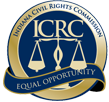The Executive Director of the Indiana Civil Rights Commission (“Commission,”) pursuant to statutory authority and procedural regulations, hereby issues the following findings with respect to the case against Troy Manor Cooperative, Inc. (Respondent). Reasonable cause exists to believe that an unlawful discriminatory practice occurred in this instance. A charge is therefore issued in accordance with 910 IAC 2-6-6(b).
By way of background and at all times relevant to the complaint, Complainants resided in Respondent’s cooperative housing community for approximately 25 years and were participants in the Section 8 Housing Choice Voucher Program. In 2009, during the course of their tenancy with Respondent, Complainant 1 (husband) sustained a head injury that affected his mobility and balance. Further, Complainant 2 (wife) suffers from circulation issues. Nonetheless, Complainants’ condition is sufficiently severe that the family receives SSI income.
At all times relevant to the Complaint, Complainants were aware of and subject to Respondent’s policies and procedures regarding recertification. Specifically, Respondent’s policies required participants of the Section 8 program to submit to annual housing inspections as well as income verifications in order to remain qualified under the parameters. The policies also provided that any unit failing two housekeeping inspections within a 12-month period would be subject to a final warning before eviction. The policy further provided additional housekeeping infractions while on final warning would result in the issuance of a 30-day notice to vacate and initiation of eviction proceedings.
After two decades of compliance, evidence shows that in April 2014, Respondent became aware of pest control issues with Complainants’ unit. Shortly thereafter, on or about April 22, 2014, Respondent sent Complainants correspondence indicating that their unit was not in decent, safe, and sanitary condition due to the pest control issues. While the letter informed Complainants that the failure to bring their unit up to standards could result in the issuance of a Final Warning before eviction, Complainants failed to remedy the situation. Shortly thereafter, on or about June 16, 2014, Respondent issued Complainants a Final Warning before Eviction for failing housekeeping inspections and on or about July 14, 2014, Respondent sent Complainants a 30 day notice to vacate for failing an additional housekeeping inspection. Nonetheless, on September 18, 2014, Respondent issued Complainants a notice indicating that another housekeeping inspection would be conducted on or about September 25, 2014. While Complainants’ unit passed the September housekeeping inspection, Respondent continued eviction proceedings. On or about October 29, 2014, Complainants tendered Respondent a document entitled “Request for reasonable accommodation” asking whether they would be permitted to renew their lease if they were able to utilize Golden Heart Care, a cleaning service, to assist with housekeeping duties. Alternatively, the request asked for additional time to vacate the unit in light of their disabilities. No evidence has been provided or uncovered to show that Respondent engaged in the interactive dialogue process with Complainants after receiving the request; rather, evidence shows that Respondent simply continued the eviction process. Ultimately, Respondents continued with the eviction proceedings and Complainants vacated the apartment.
Despite Respondent’s assertions, there is insufficient evidence to support their claims. While Respondent asserts that Complainant 1 could not be disabled as they “witnessed [them] walking to the store and carrying groceries” as well as “walk close to a mile,” it is evident that one or more Complainants suffered from a disability as defined under the applicable laws because Complainants received SSI income. Moreover, evidence shows that while the Complainants tendered a request for a reasonable accommodation, Respondent failed to address or respond to the request. Simply stated, Respondent’s failure to engage in the interactive dialogue process after the Complainants requested a reasonable accommodation constitutes a violation of the Fair Housing laws as alleged.
A public hearing is necessary to determine whether a violation of the Indiana Fair Housing Act, the Indiana Civil Rights Law, and/or Title VIII of the Civil Rights Act of 1968, as amended, occurred in the aformentioned case. As permitted by 910 IAC 2-6-6(h), Respondents, Complainants, or any aggrieved person on whose behalf the Complaint is filed may elect to have the claims asserted in a civil action under Ind. Code § 22-9.5-6-12 in lieu of an administrative proceeding.
